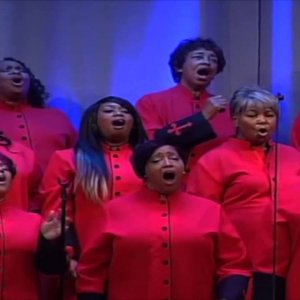- Feb 28, 2009
- 19,373
- 5,583
Hosea Williams (1926-2000)
Williams, a former aide to Martin Luther King Jr., was a principal leader of the civil rights movement. Renowned for his militancy and his ability to organize demonstrations and mobilize protesters, he was arrested more than 125 times. Williams helped coordinate the 1965 protest march in Alabama from Selma to Montgomery, served as pastor of King's People's Church of Love, and was executive director of the Southern Christian Leadership Conference (SCLC). He also took on more traditional governmental roles: he served in the Georgia General Assembly from 1974 to 1985, on the Atlanta City Council from 1985 to 1990, and as a DeKalb County commissioner from 1990 to 1994.
Hosea Lorenzo Williams was born on January 5, 1926, in Attapulgus, in Decatur County. His teenage parents were unmarried. They were also blind and had been committed to a trade institute for the blind in Macon. Because his mother ran away from the institute upon learning of her pregnancy, Williams never knew his father. His mother died while giving birth to her second child, and Williams was raised in Attapulgus by his maternal grandparents, Lela and Turner Williams. Nearly lynched because of his alleged involvement with a white girl, Williams left home at the age of fourteen. He held menial jobs for several years until he enlisted in the U.S. Army at the outset of World War II (1941-45) and served in an all-black unit attached to General George Patton's Third Army. Severely wounded in battle, which earned him a Purple Heart and left him with a permanent limp, Williams spent a year in a military hospital in Europe.
.....
http://www.georgiaencyclopedia.org/nge/Article.jsp?id=h-2721
Williams, a former aide to Martin Luther King Jr., was a principal leader of the civil rights movement. Renowned for his militancy and his ability to organize demonstrations and mobilize protesters, he was arrested more than 125 times. Williams helped coordinate the 1965 protest march in Alabama from Selma to Montgomery, served as pastor of King's People's Church of Love, and was executive director of the Southern Christian Leadership Conference (SCLC). He also took on more traditional governmental roles: he served in the Georgia General Assembly from 1974 to 1985, on the Atlanta City Council from 1985 to 1990, and as a DeKalb County commissioner from 1990 to 1994.
Hosea Lorenzo Williams was born on January 5, 1926, in Attapulgus, in Decatur County. His teenage parents were unmarried. They were also blind and had been committed to a trade institute for the blind in Macon. Because his mother ran away from the institute upon learning of her pregnancy, Williams never knew his father. His mother died while giving birth to her second child, and Williams was raised in Attapulgus by his maternal grandparents, Lela and Turner Williams. Nearly lynched because of his alleged involvement with a white girl, Williams left home at the age of fourteen. He held menial jobs for several years until he enlisted in the U.S. Army at the outset of World War II (1941-45) and served in an all-black unit attached to General George Patton's Third Army. Severely wounded in battle, which earned him a Purple Heart and left him with a permanent limp, Williams spent a year in a military hospital in Europe.
.....
http://www.georgiaencyclopedia.org/nge/Article.jsp?id=h-2721





